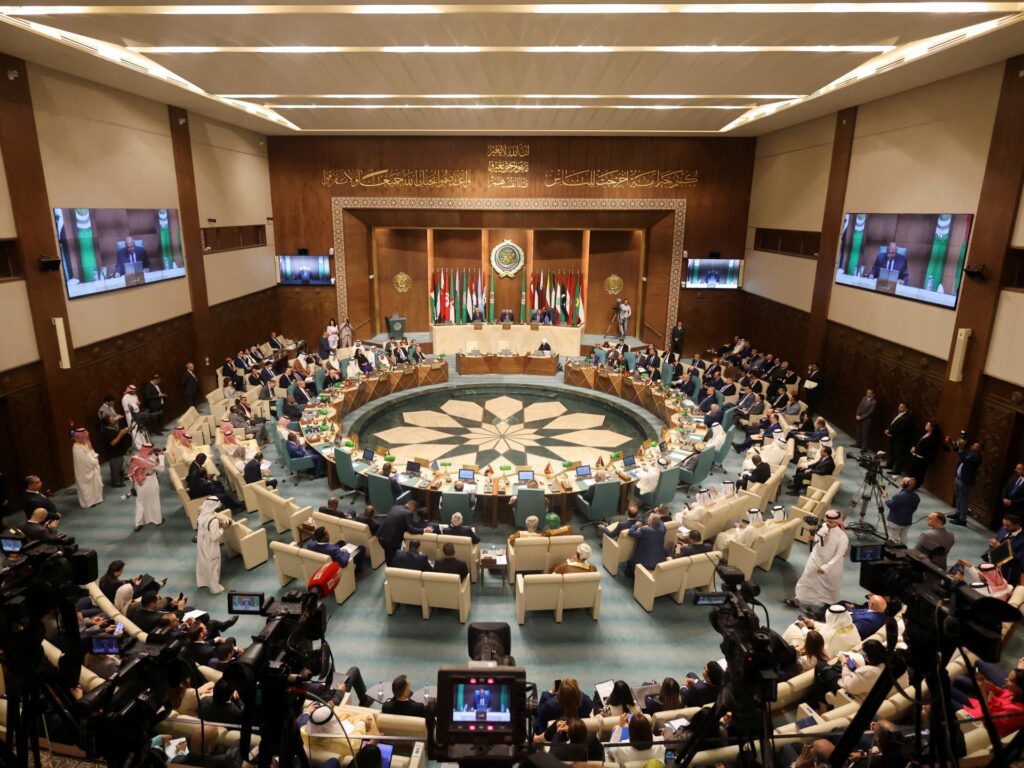In an article in the French newspaper “Lo’Los”, Tunisian writer and doctor Mohamed Salah Ben Ammar recalls a statement by former US Secretary of State Henry Kissinger, when he asked about the phone number of the Arab League, at a time when Gazans were being killed by the thousands under bombs.
Ben Ammar, a former Minister of Health in Tunisia, begins his article by recalling the memory of the arrival of survivors of the Sabra and Shatila massacre in 1982 to Tunisia, deported from Beirut, in a hidden reference to the Gaza Strip, where the number of martyrs reached more than 15,000 in addition to 60,000 wounded. And about two million displaced people, asking, “Where are the Arabs?”
To know this – the writer says – you must, ironically, read the Israeli press, where the left-wing newspaper “Haaretz” narrates that many Arab leaders, behind the scenes, are calling on Israel to continue military operations until the complete annihilation of the Islamic Resistance Movement (Hamas), what remains of The Muslim Brotherhood, as if this war suits the rulers of our region as long as no one knows about it.
Because “the Arabs agreed not to agree,” the writer recalls that there are rarely two countries in the Arab League without an open or latent war between them, and that the leaders of these countries have been unable for 75 years to agree on the strategic choices that were dictated to them by the life of every Palestinian child.
Desperate and hopeless indifference
Although the writer does not doubt – as he says – the sincerity of the feelings of the “Arab Street” towards the Palestinian “brothers”, he believes that the Arabs find an outlet in the Palestinian drama, because the flow of solidarity without going beyond the stage of sympathy does not seem comfortable, as the ordinary citizen forgets, in front of… The horrific pictures from Gaza, all the obstacles to freedom and poverty, as if his condition was no longer bad compared to his brothers deprived of water, food and medicine.
Consequently, the fatalistic tendency is strengthened in light of the Palestinian tragedy in an unconscious but widespread way, as if the Arab peoples have adopted this old saying: “When I look at myself, I feel sorry, but when I compare myself to others, I find solace.”
In a climate of generalized despair, the slightest act on behalf of Palestine is intended to be transformed into a heroic act, even if this is manifested in merely sending a little food aid or receiving groups of war-wounded, or even wearing the keffiyeh in meetings as a symbolic display that can arouse feelings of sympathy.. There is nothing Construction work.
For this reason, the Palestinian drama is also the drama of an entire region, and instead of prompting action, it pushes us into more desperate and hopeless indifference.
In a climate of generalized despair, the slightest act on behalf of Palestine is intended to be transformed into a heroic act, even if this is manifested in merely sending a little food aid or receiving groups of war-wounded, or even wearing the keffiyeh in meetings as a symbolic display that can arouse feelings of sympathy.. There is nothing Construction work, according to the writer.
Machiavellian leaders
The writer concludes that what we are currently going through can only lead to greater calamities, as our Machiavellian leaders have an interest in the continuation of this conflict, because every war is an opportunity that must be seized to extend their authority and tighten the screws on their people. They are illegitimate, and therefore do not enjoy credibility. They are unable to have their voices heard internationally.
However, the Arabs must agree on a future reading of history, not retrospectively, as is unfortunately the case currently, and on a clear vision of the reality of the balance of power in the world, and gain the courage to accept incomplete solutions and continue the struggle for common ideals – as the writer says – and must become… Our societies are democratic in order to overcome the specter of underdevelopment, corruption and oppression.
Ben Ammar mentioned that former Tunisian President Habib Bourguiba was a visionary, and was an intelligent and respected politician who knew how to set a date with history before the spirit of Oslo, when he announced in 1965, in Jericho, the necessity of recognizing Israel officially and without ambiguity within its borders at that time, while ensuring the establishment of a state. A viable Palestinian state within secure and recognized borders.
The writer concluded that the Arabs have long preferred the illusion that reactionary populists talk about, although the historical position of Bourguiba’s Tunisia, which is a smart combination of steadfast support for the Palestinians in the face of occupation and the principle of realism, can serve as a model for the international community to get out of the current impasse.

